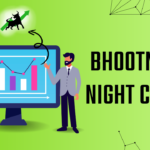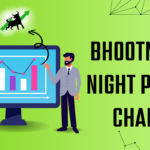Welcome to the inaugural post of VoicesOfConservation.org, your new hub for in-depth discussions and updates on environmental conservation and sustainability. As we embark on this journey, our goal is to amplify the voices of those dedicated to protecting our planet and to spark meaningful dialogue on the pressing issues facing our natural world. From the latest scientific research and policy developments to grassroots initiatives and personal stories, this blog aims to provide a comprehensive platform for learning, sharing, and advocating for a healthier, more sustainable future. Join us as we explore the critical challenges and inspiring solutions that shape our efforts to conserve and cherish the Earth for generations to come.
Define Your Mission and Goals
Before you start voicesofconservation.org blog writing, it’s essential to have a clear understanding of what your blog aims to achieve. Ask yourself:
- What is the primary mission of VoicesofConservation.org? Is it to educate, advocate, or mobilize action?
- Who is your target audience? Are you focusing on activists, policy-makers, general readers, or students?
Defining these elements will help shape your content strategy and ensure your blog remains focused and impactful.
Develop a Strong Brand Identity
Your blog’s brand identity is crucial for making a memorable impression. Consider the following:
- Name and Domain: Choose a domain name that reflects your mission and is easy to remember. Since you’ve chosen VoicesofConservation.org, ensure the name aligns with your branding strategy.
- Logo and Design: Invest in a professional logo and a clean, engaging website design. Your site should be visually appealing, easy to navigate, and optimized for various devices.
- Tone and Voice: Establish a consistent tone and voice that resonates with your audience. Whether it’s authoritative, conversational, or passionate, your style should reflect your mission and engage your readers.
Create High-Quality, Relevant Content
Content is the backbone of any successful blog. Focus on the following:
- Research-Based Articles: Provide well-researched, evidence-based articles on conservation topics. Include data, case studies, and expert opinions to add credibility.
- Diverse Formats: Mix up your content formats. Incorporate infographics, videos, interviews, and guest posts to cater to different preferences and keep your blog dynamic.
- Actionable Insights: Offer practical advice and actionable steps that readers can take to contribute to conservation efforts. This could include tips on sustainable living, how to support conservation organizations or ways to get involved in local initiatives.
Build a Content Calendar
A content calendar helps you stay organized and maintain consistency. Plan out your posts in advance, considering:
- Topics and Themes: Schedule posts around relevant themes and events, such as Earth Day or conservation awareness weeks.
- Frequency: Decide how often you’ll publish new content. Consistency is key, whether you opt for weekly, bi-weekly, or monthly posts.
- Deadlines: Set deadlines for drafts, edits, and final publication to ensure a steady flow of content.
Engage with Your Audience
Building a community around your blog is vital for its success. Engage with your audience through:
- Comments and Feedback: Encourage readers to leave comments and participate in discussions. Respond to their queries and feedback to build a sense of community.
- Social Media: Promote your blog posts on social media platforms. Create engaging posts that drive traffic to your blog and encourage shares.
- Email Newsletter:start voicesofconservation.org blog an email newsletter to keep your subscribers updated on new posts, upcoming events, and special features. Provide exclusive content or offers to make your newsletter valuable.
Collaborate and Network
Collaboration can amplify your blog’s reach and impact. Consider the following:
- Guest Posts: Invite experts, activists, or other bloggers to contribute guest posts. This can bring fresh perspectives and attract their audience to your blog.
- Partnerships: Partner with conservation organizations, environmental groups, or educational institutions for cross-promotion and joint initiatives.
- Events and Webinars: Host or participate in online events and webinars to showcase your expertise and engage with a broader audience.
Optimize for Search Engines (SEO)
Search engine optimization (SEO) is crucial for driving organic traffic to your blog. Focus on:
- Keyword Research: Identify relevant keywords and incorporate them naturally into your content. Use tools like Google Keyword Planner to find popular search terms related to conservation.
- On-Page SEO: Optimize your blog posts with meta descriptions, header tags, and alt text for images. Ensure your content is well-structured and easy to read.
- Backlinks: Build backlinks by getting your blog mentioned on other reputable sites. This can improve your search engine ranking and increase visibility.
Monitor and Analyze Performance
Regularly track your blog’s performance to understand what’s working and what needs improvement. Use tools like Google Analytics to monitor:
- Traffic Sources: Identify where your traffic is coming from and which channels are most effective.
- User Behavior: Analyze how readers interact with your blog, including which posts are most popular and how long they stay on your site.
- Engagement Metrics: Measure engagement through comments, social shares, and email sign-ups to gauge the impact of your content.
Stay Updated and Adapt
The world of conservation and blogging is constantly evolving. Stay informed about the latest trends, research, and technologies in both fields. Be ready to adapt your strategies based on new developments, reader feedback, and changing environmental issues.
Also Check:Bhootnath Night Result Satta Matka
Stay Passionate and Persistent
start voicesofconservation.org blog a blog is just the beginning. Maintaining a high level of passion and persistence is key to long-term success. Celebrate small victories, learn from setbacks, and keep your focus on the broader mission of promoting conservation.
Conclusion
Launching VoicesofConservation.org with impact requires careful planning, strategic execution, and ongoing commitment. By defining your mission, creating high-quality content, engaging with your audience, and staying adaptable, you can build a blog that not only informs and inspires but also drives meaningful change in the realm of environmental conservation. Embrace the journey, stay passionate, and let your voice be a powerful advocate for our planet.
FAQ,s
Q1: What is the first step to starting a successful conservation blog like VoicesofConservation.org?
A1: The first step is to define your mission and goals. Clearly articulate what you want to achieve with your blog, who your target audience is, and what specific issues or topics related to conservation you will address. This foundation will guide your content strategy and overall approach.
Q2: How important is branding for a blog focused on conservation?
A2: Branding is crucial. A strong brand identity helps your blog stand out and be memorable. This includes choosing a meaningful domain name, designing a professional logo, and establishing a consistent tone and voice. Effective branding helps build credibility and attract a dedicated audience.
Q3: What types of content should I focus on for a conservation blog?
A3: Focus on creating high-quality, relevant content that includes research-based articles, diverse formats like infographics and videos, and actionable insights. Your content should be well-researched, engaging, and offer practical advice that readers can use to support conservation efforts.
Q4: How often should I publish new content on my blog?
A4: Consistency is key. Decide on a publishing schedule that you can maintain, whether it’s weekly, bi-weekly, or monthly. Regular updates keep your audience engaged and help build a loyal following. A content calendar can help you plan and manage your publishing schedule start voicesofconservation.org blog
effectively.
Q5: How can I engage with my blog’s audience?
A5: Engage with your audience by encouraging comments and feedback, promoting your content on social media, and start voicesofconservation.org blog an email newsletter. Respond to comments, foster discussions, and create interactive content to build a sense of community and keep readers connected.
Q6: What are the benefits of collaborating with others for my blog?
A6: Collaborating with experts, activists, or other bloggers can bring fresh perspectives, increase your blog’s reach, and attract new readers. Guest posts, partnerships with organizations, and participation in events or webinars can enhance your blog’s visibility and credibility.
Q7: How important is SEO for my conservation blog?
A7: SEO is very important for driving organic traffic to your blog. Effective SEO practices, such as keyword research, on-page optimization, and building backlinks, help improve your blog’s search engine ranking and make it easier for readers to find your content.














